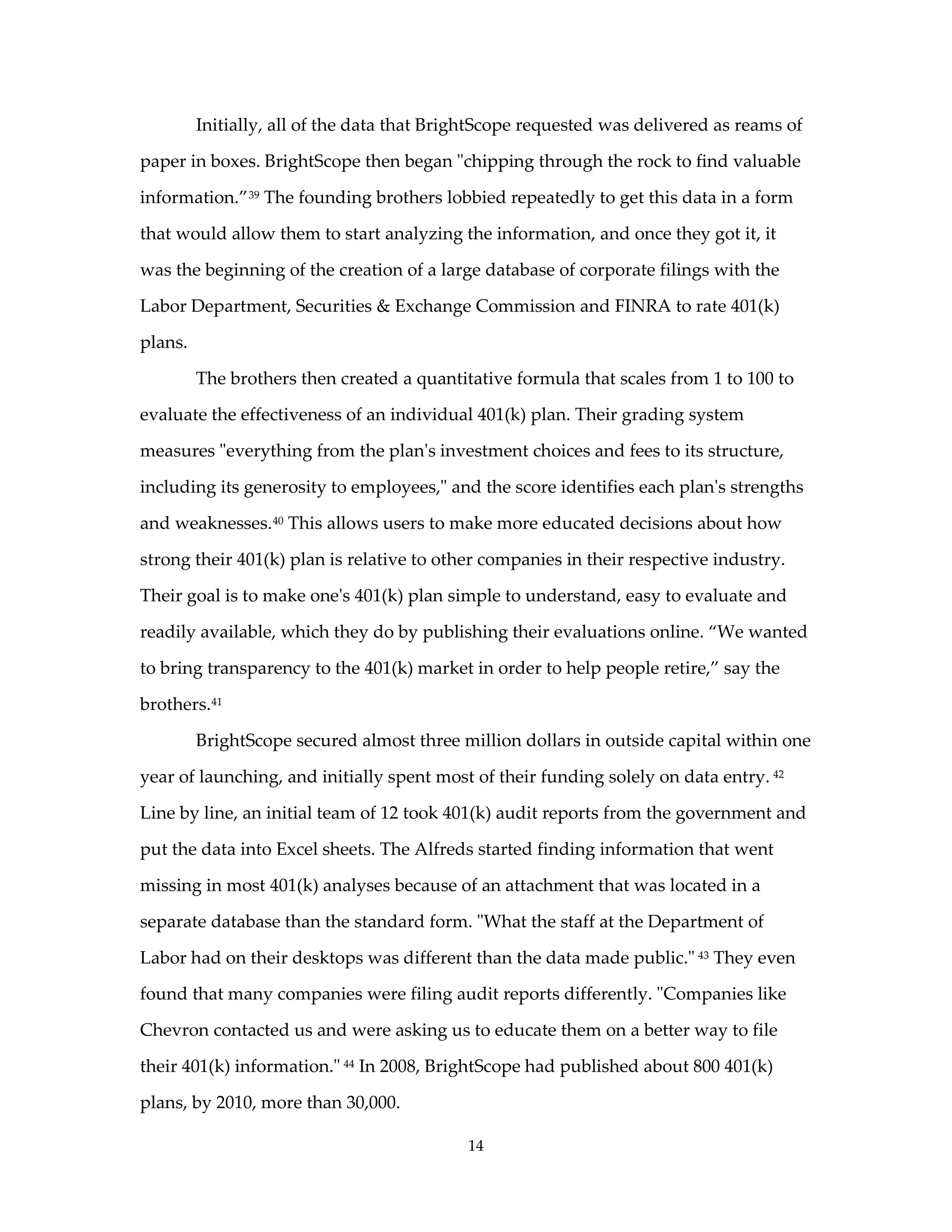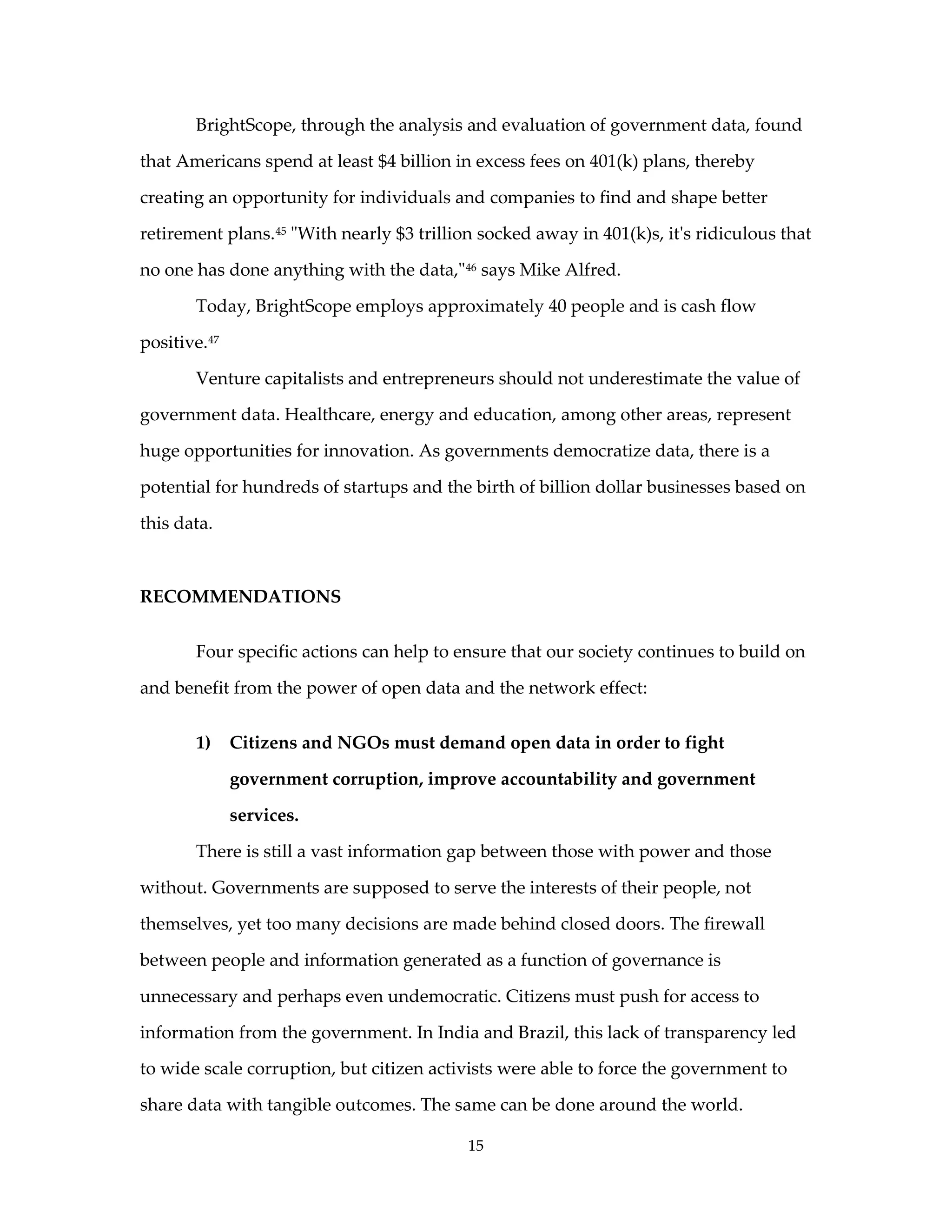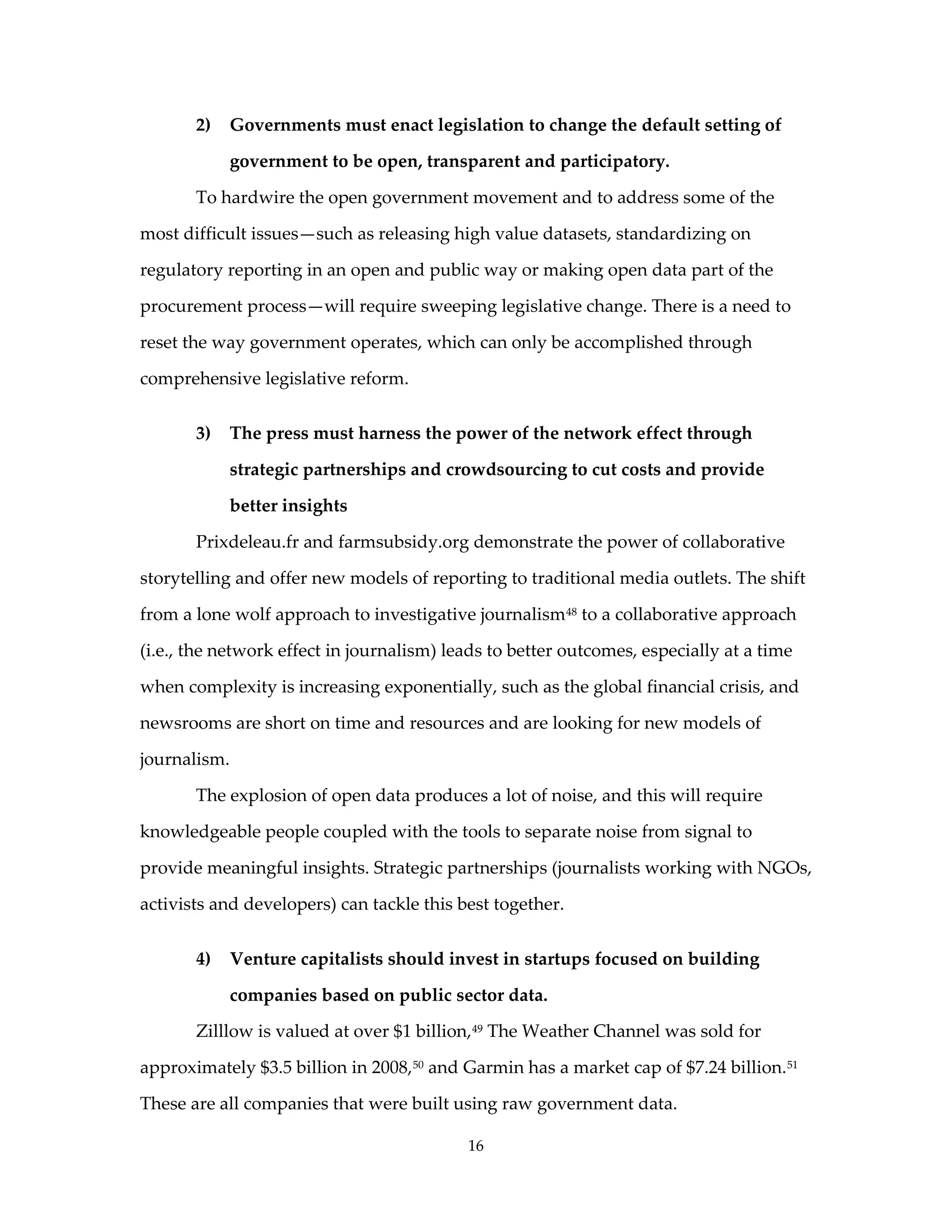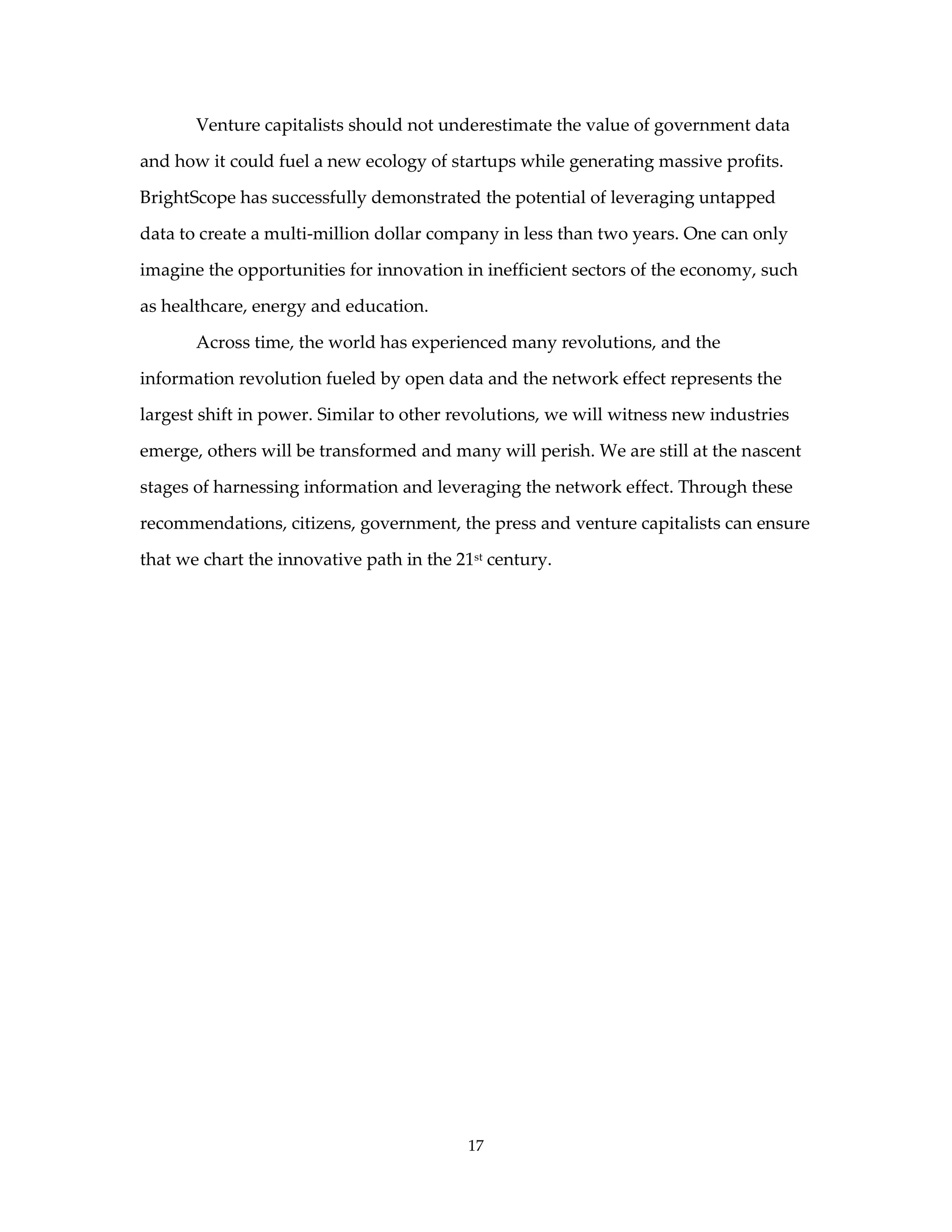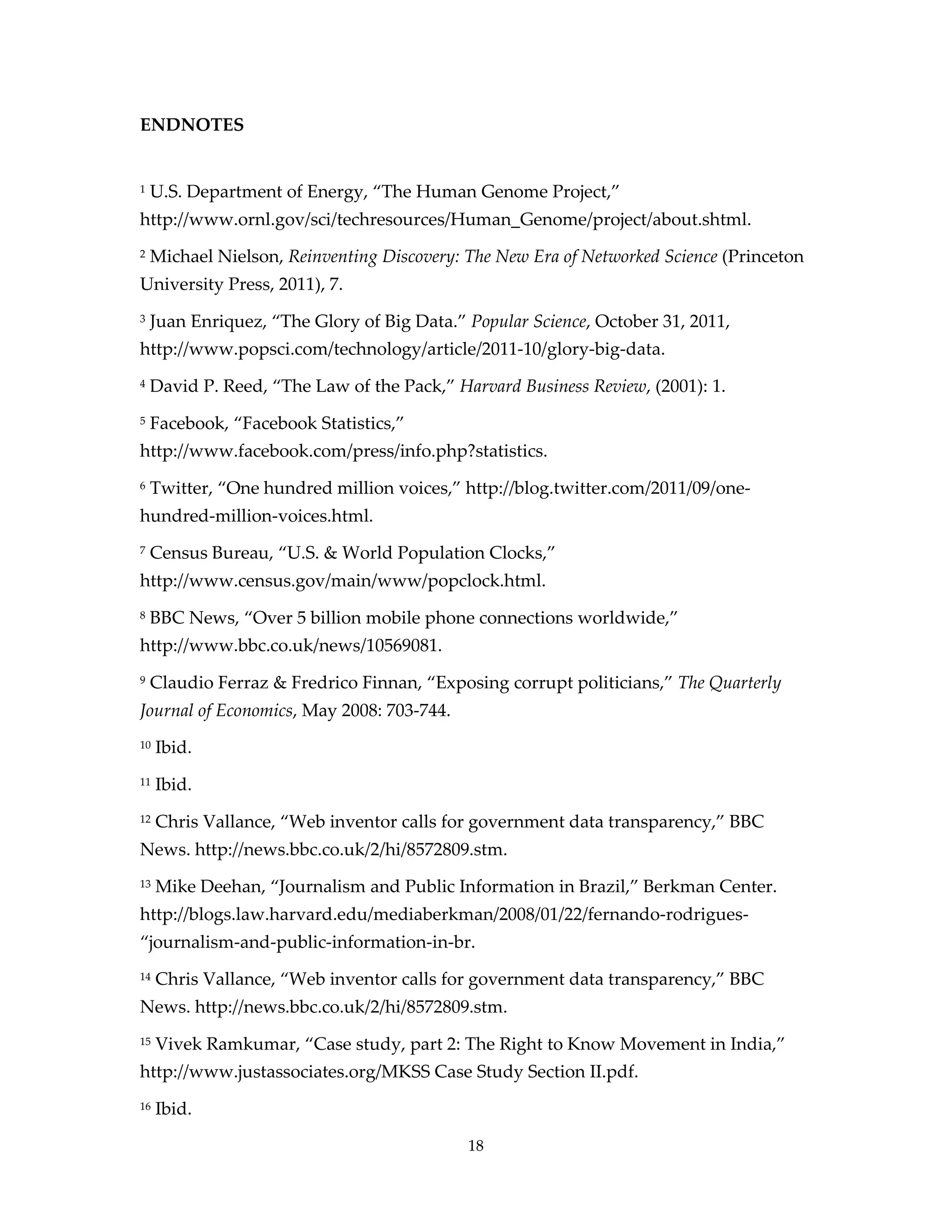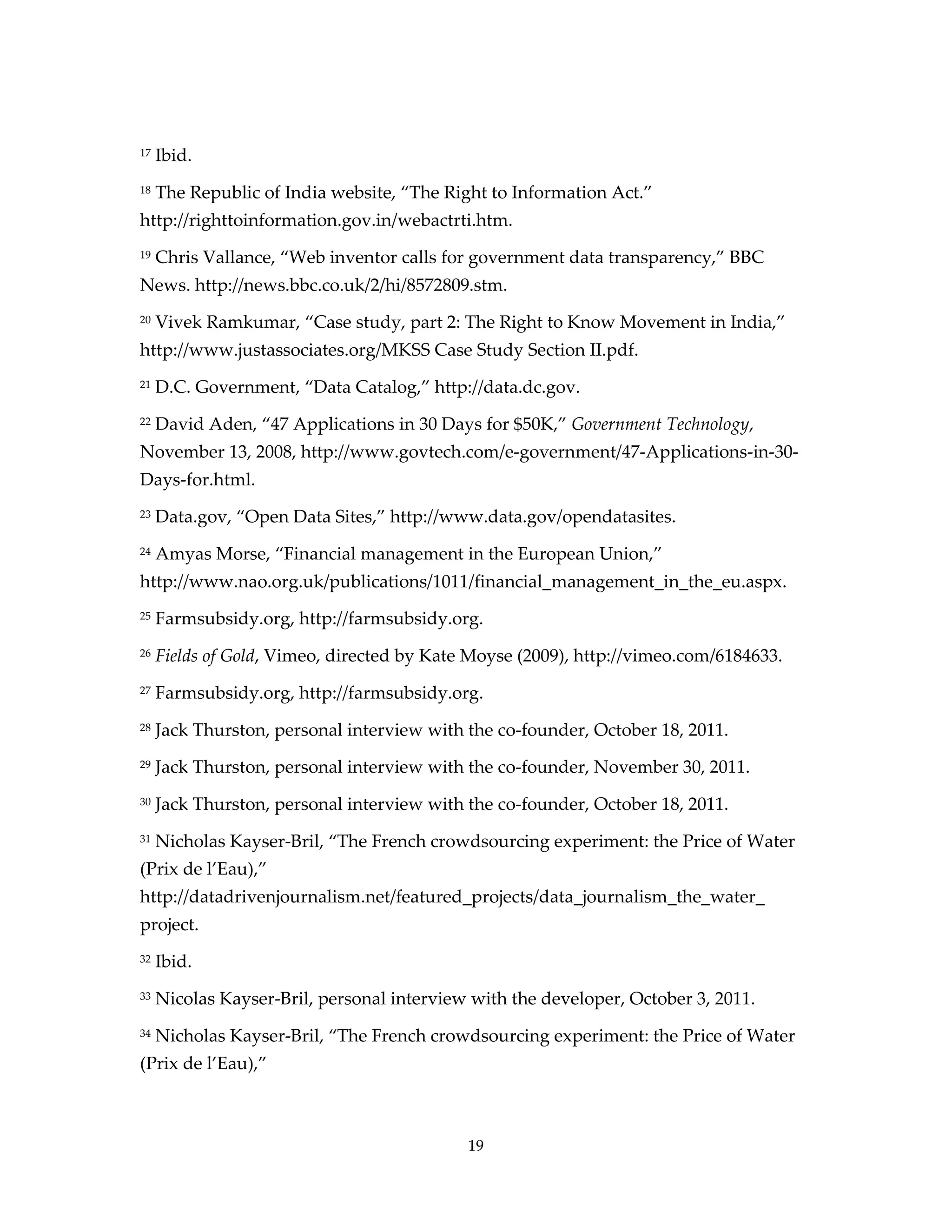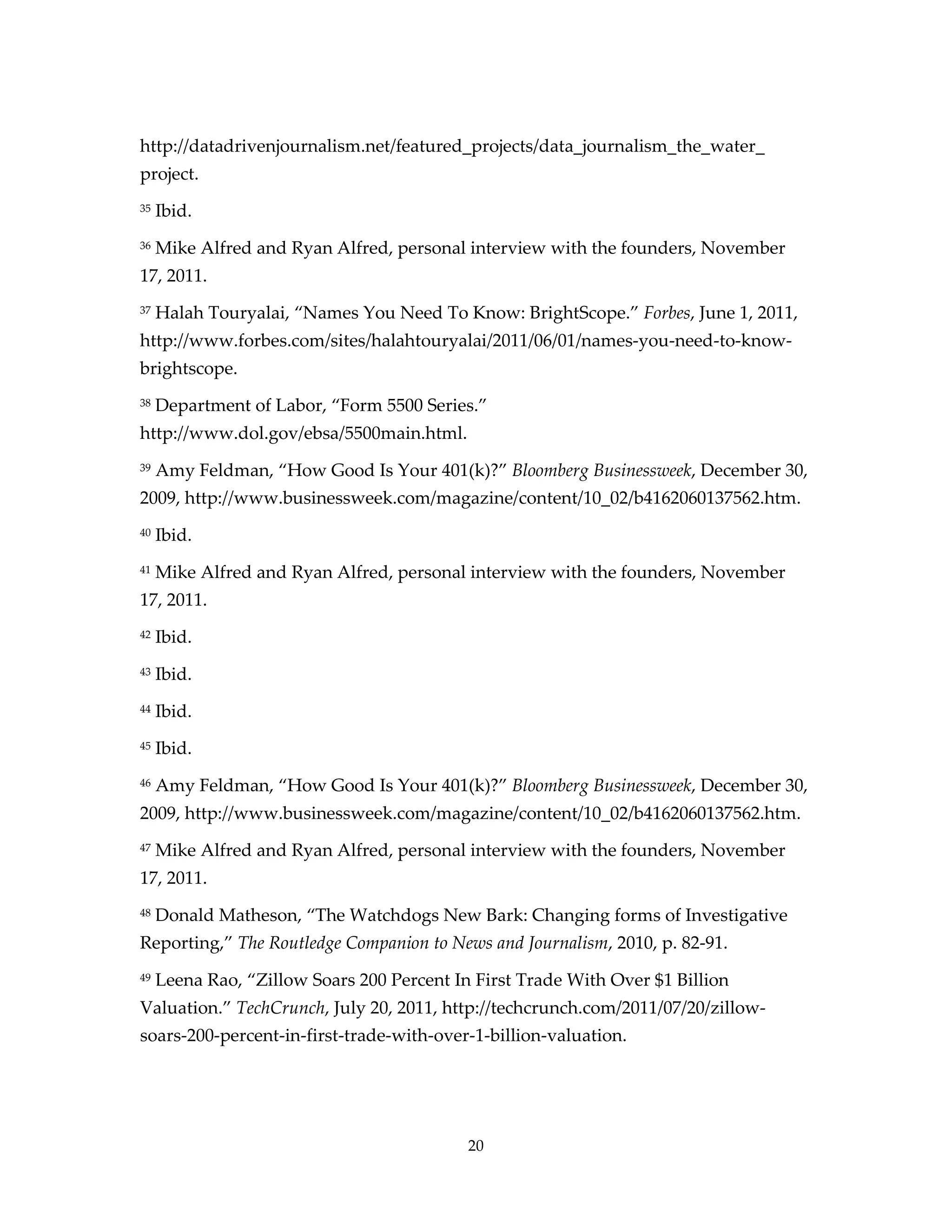The document discusses how open data and networks can empower citizens and drive innovation. It provides examples of how open data has been used in Brazil, India, and Washington D.C. to increase government transparency, fight corruption, and enable new civic applications. It argues that making government data open by default can transform the relationship between governments and citizens by fostering participatory democracy.
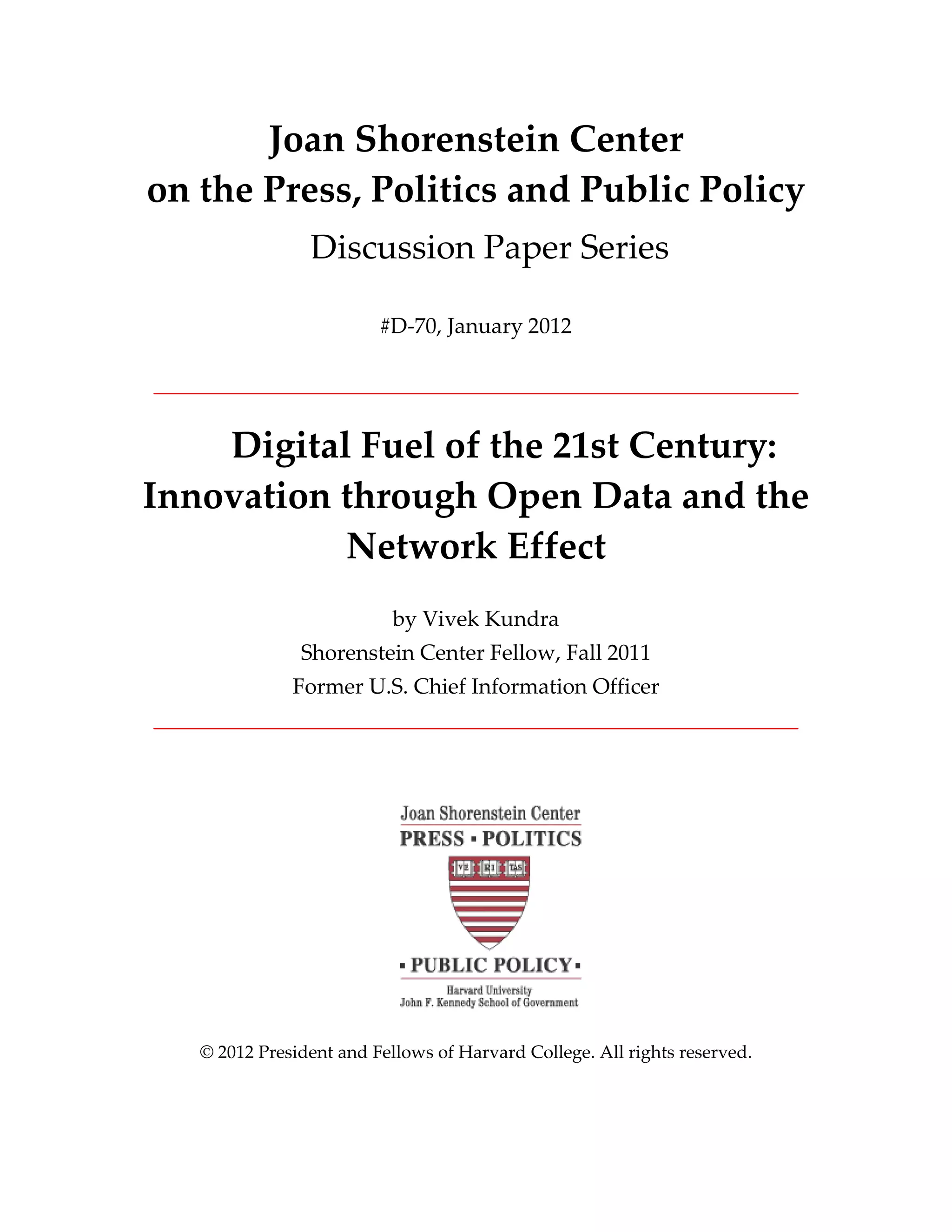
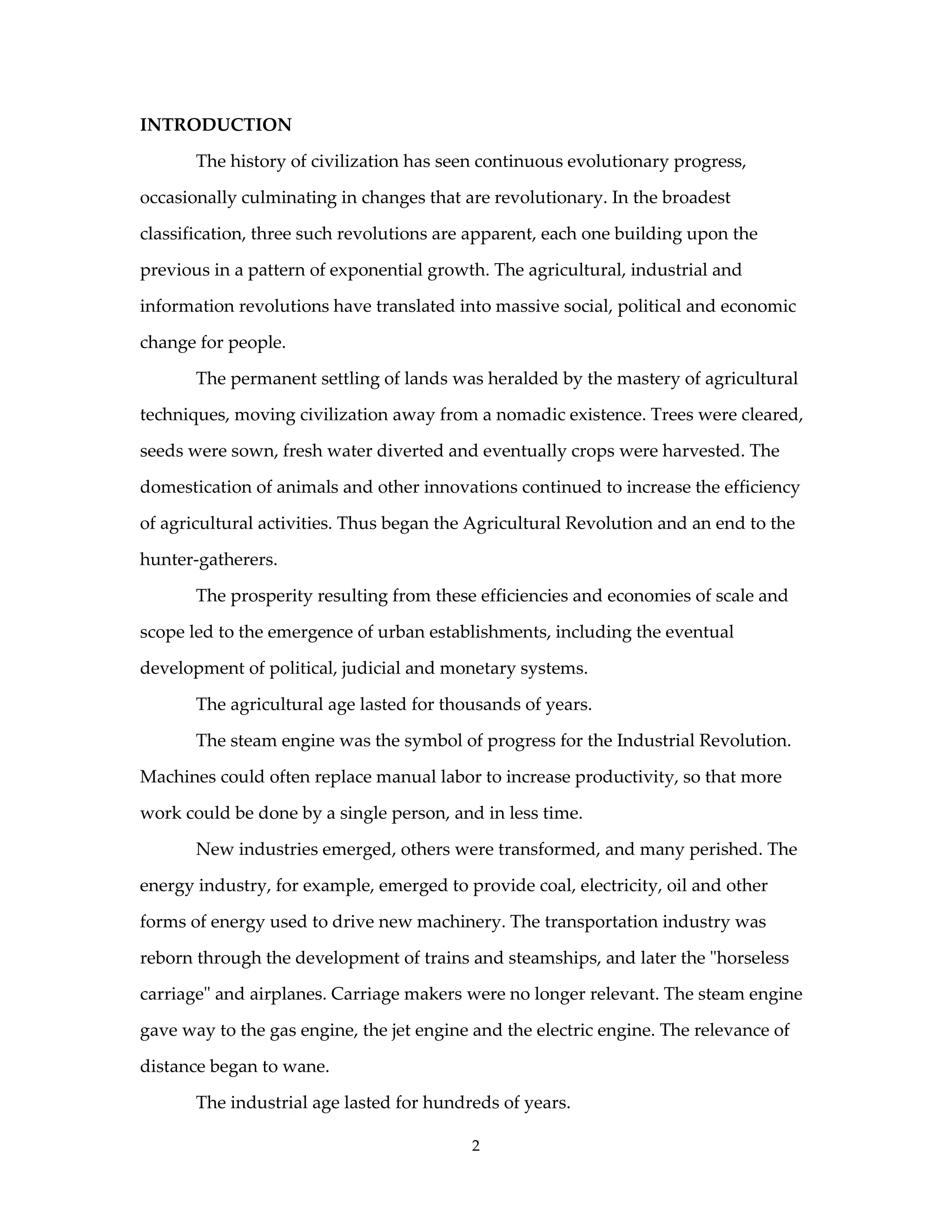
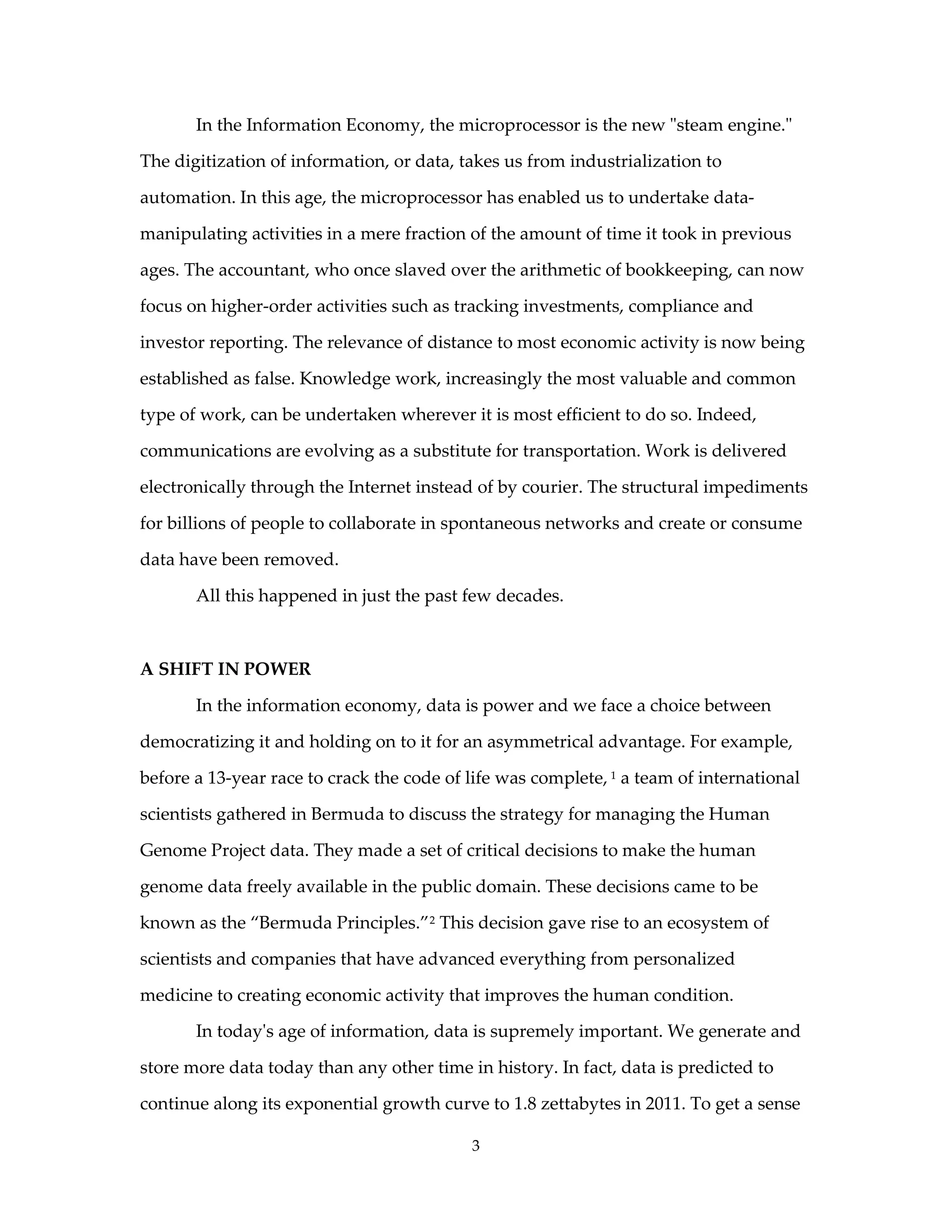
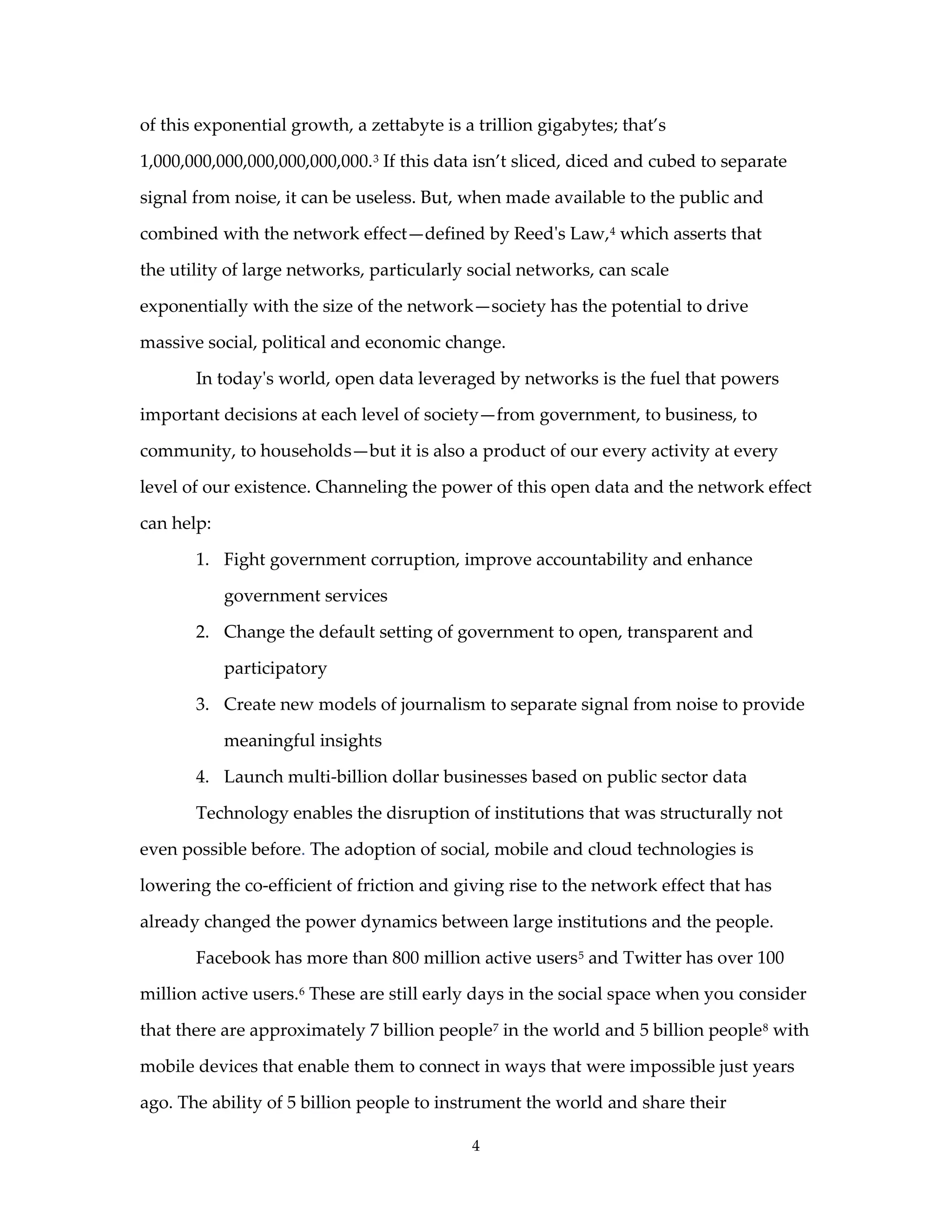
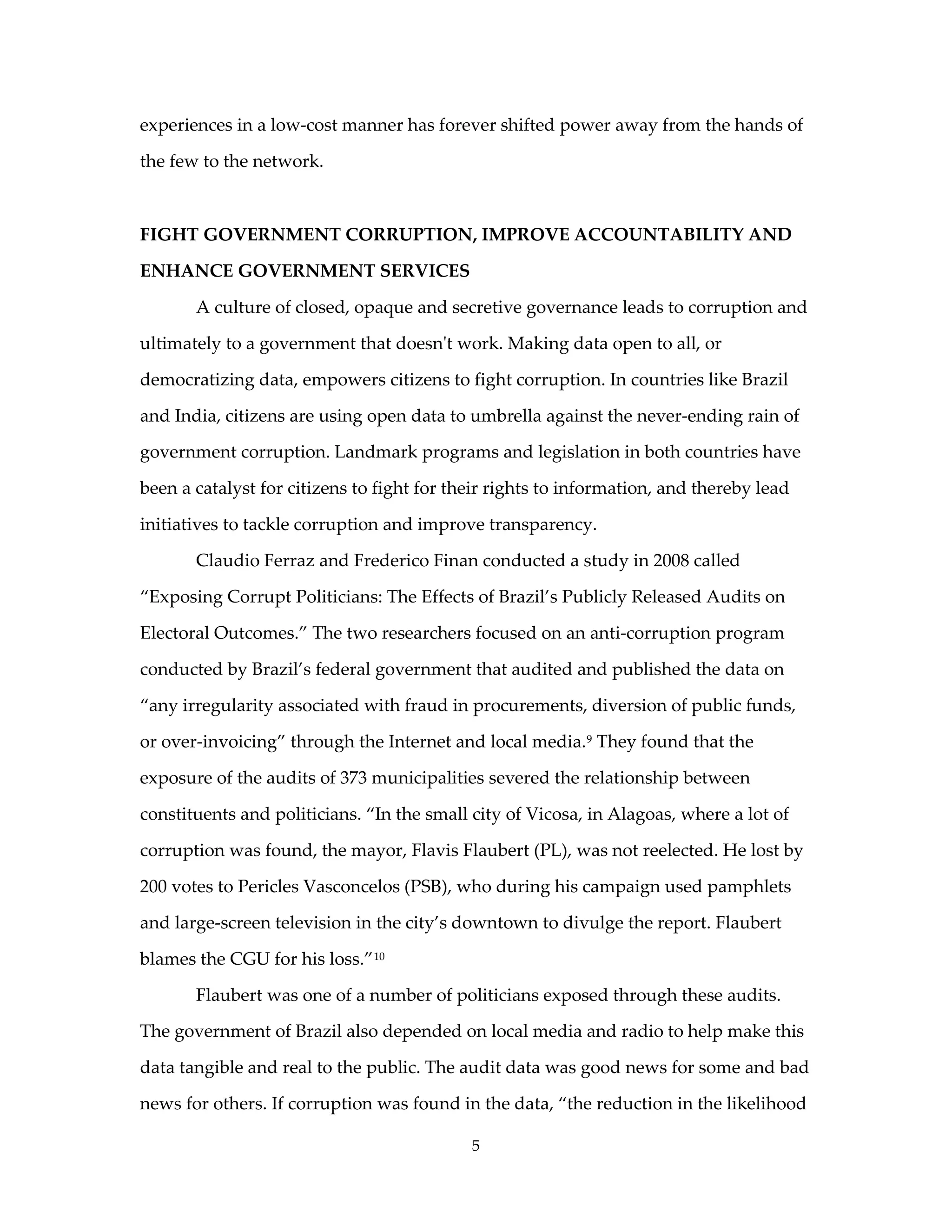
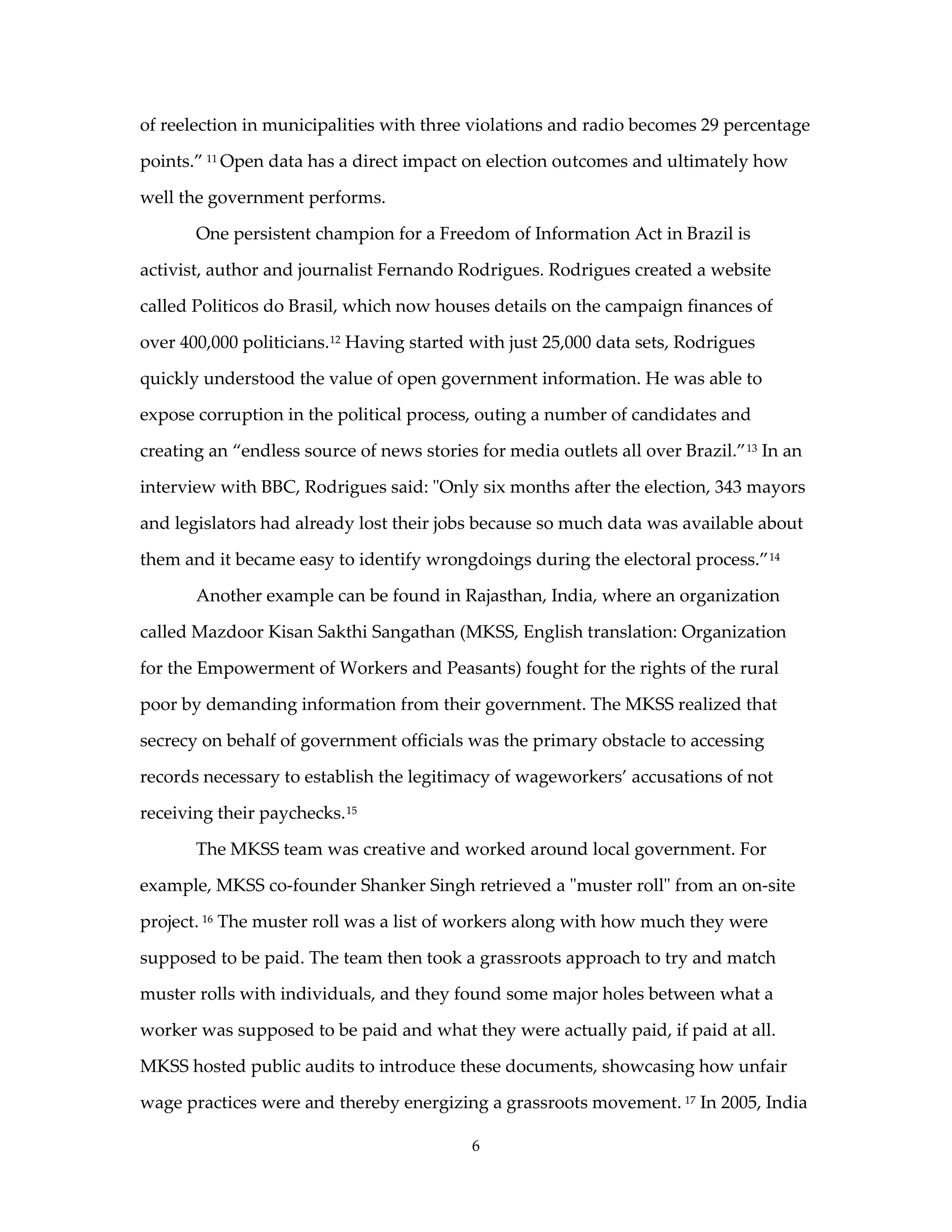
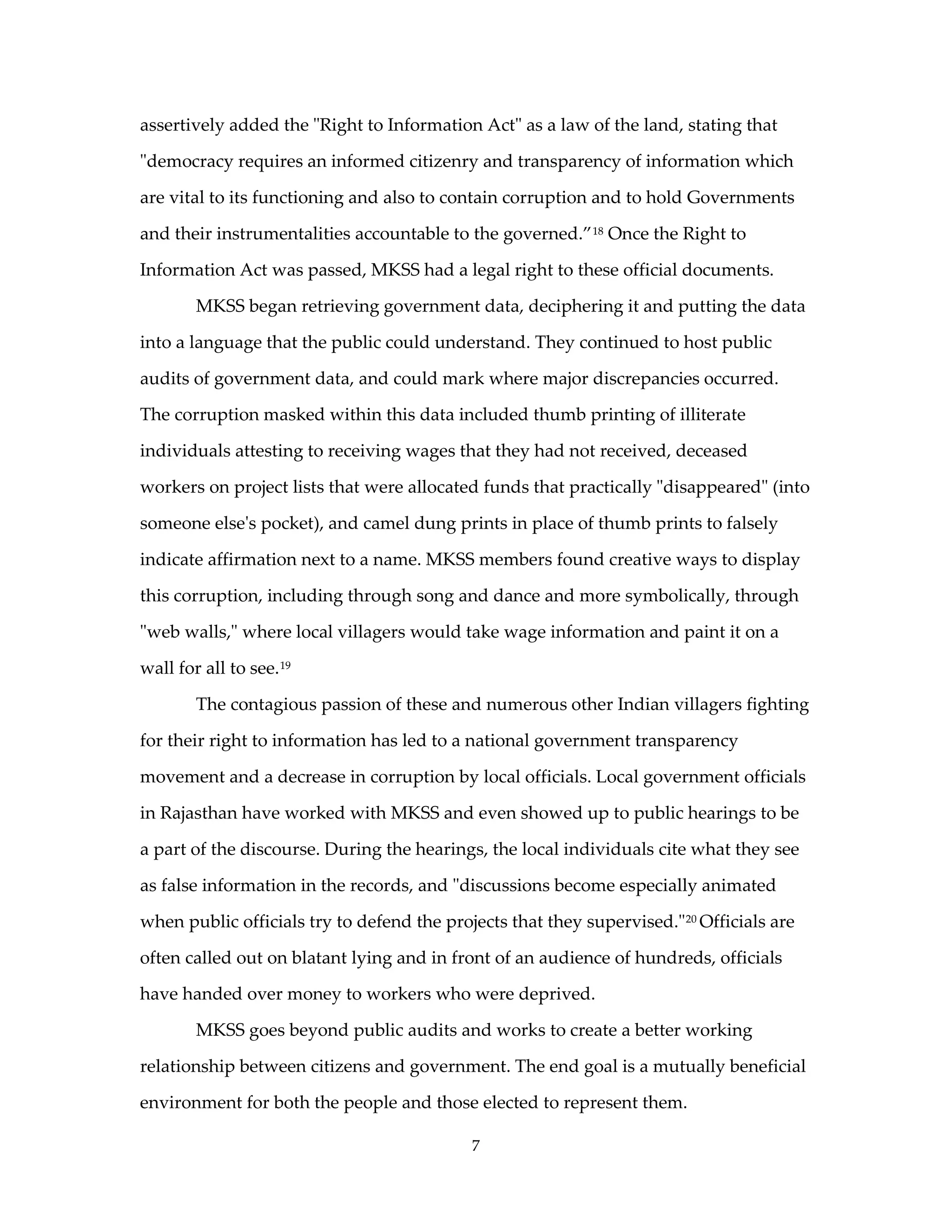
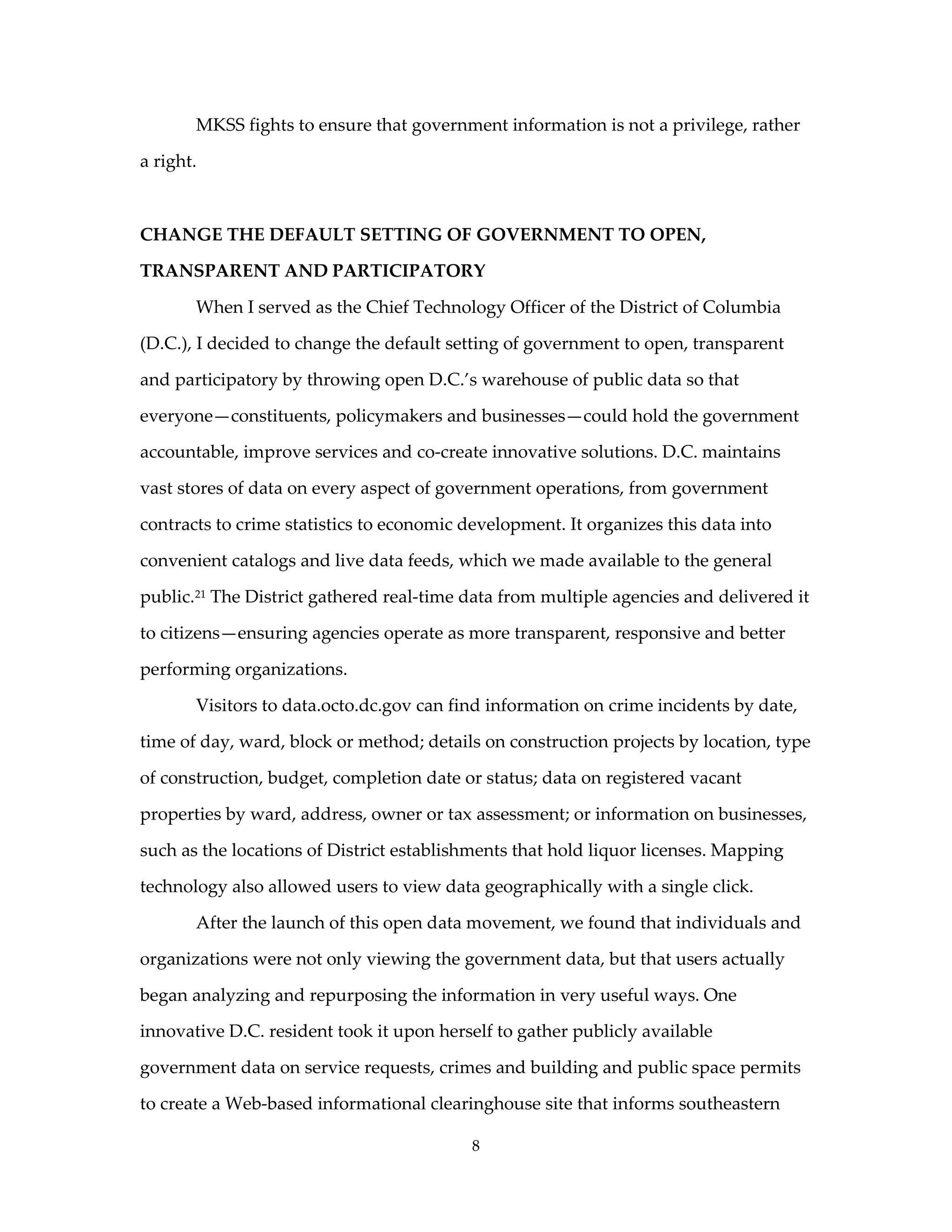
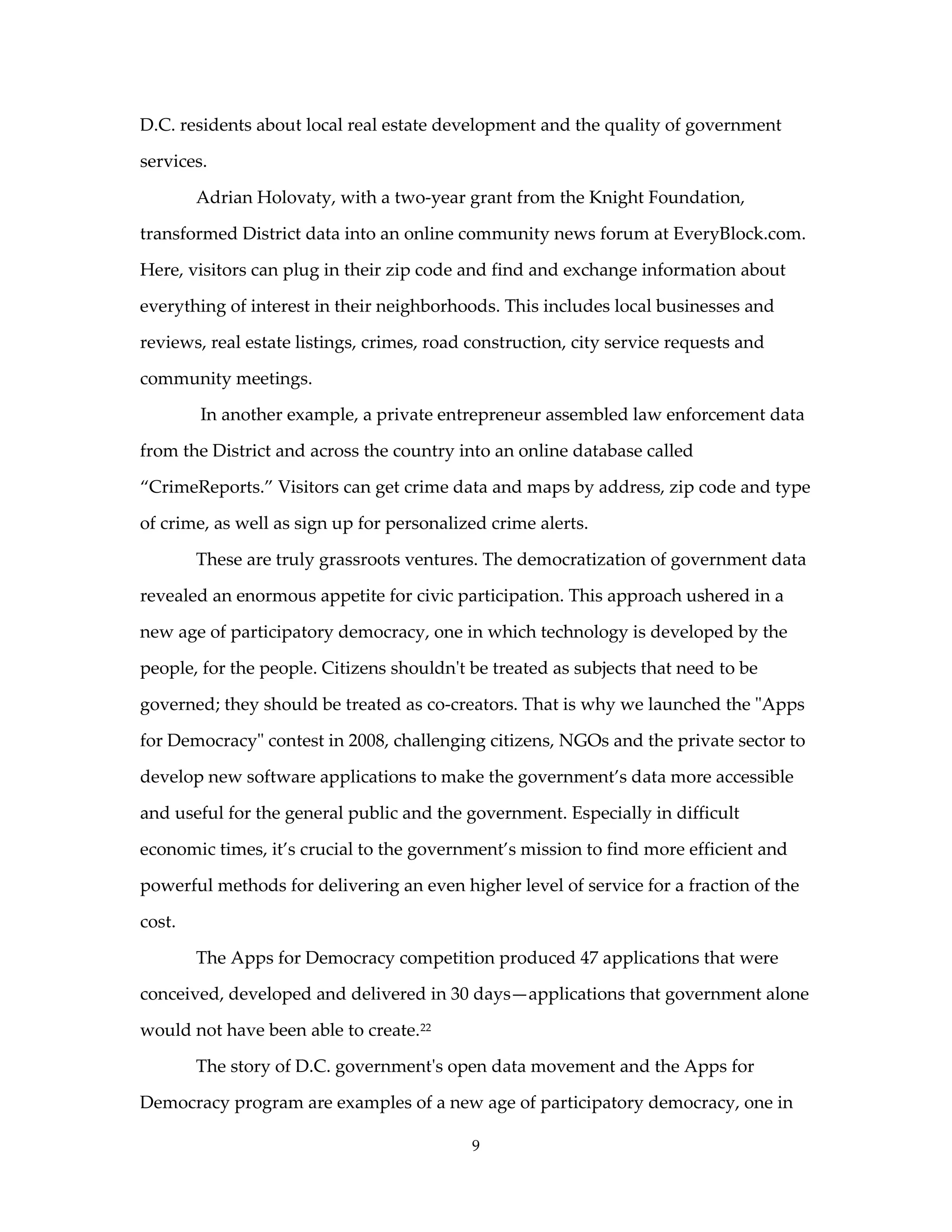
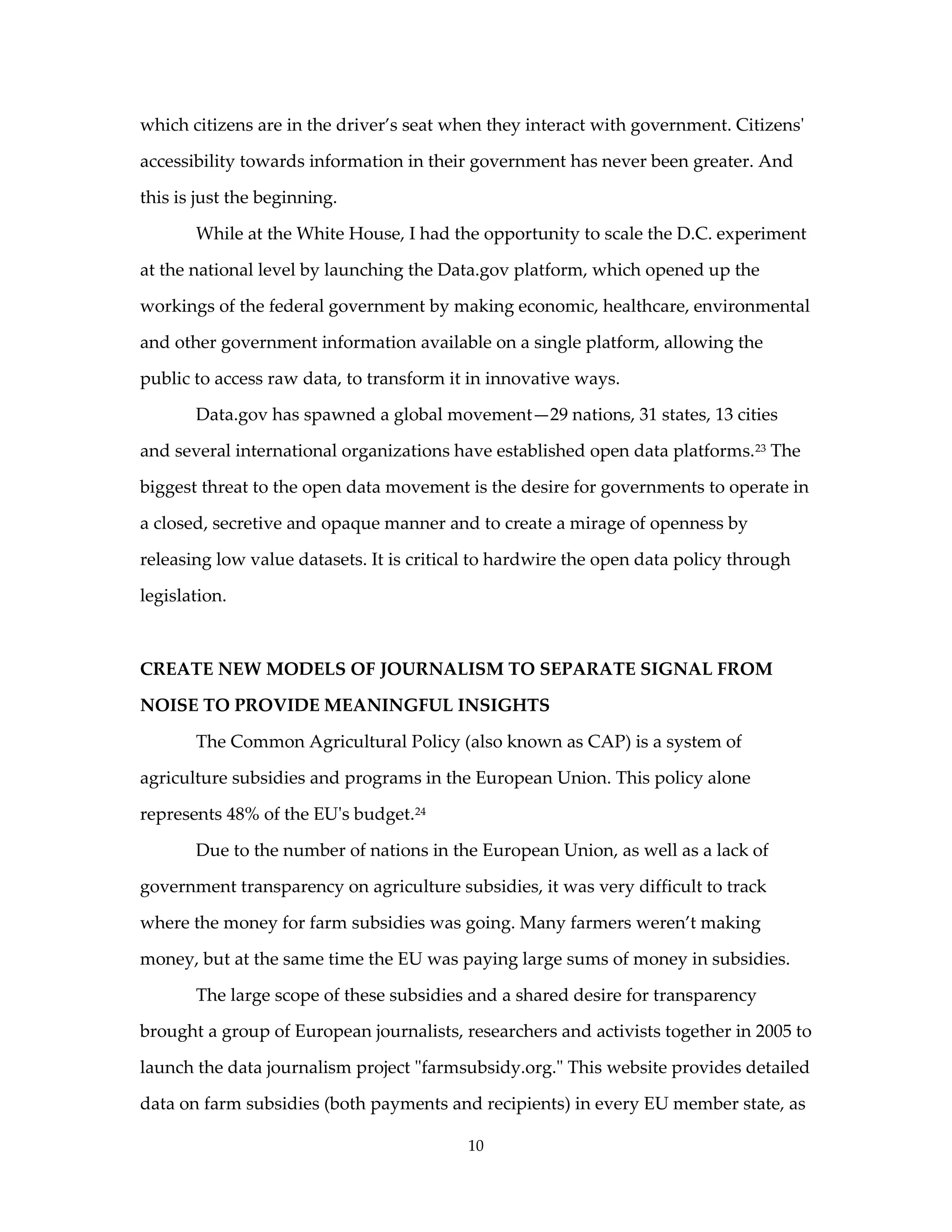
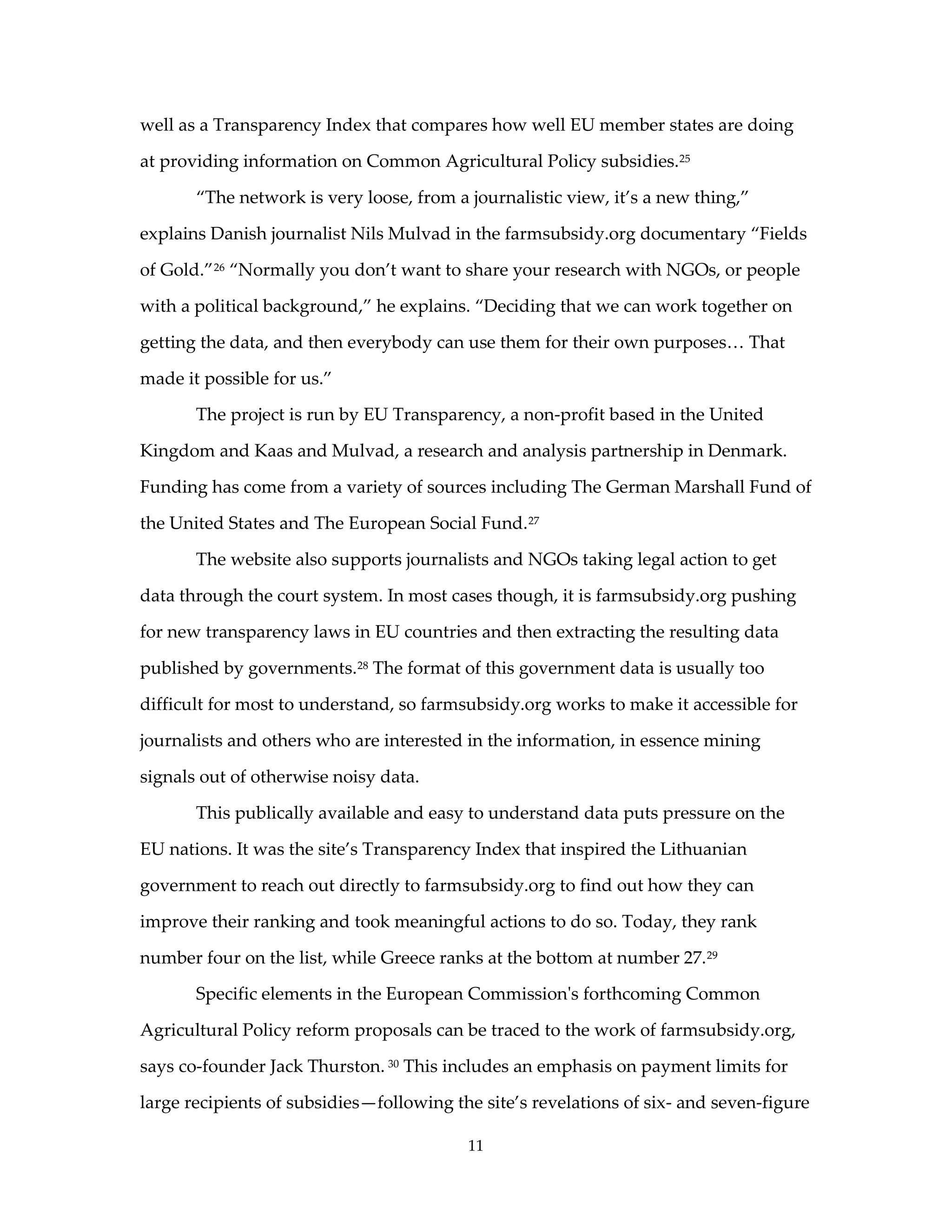
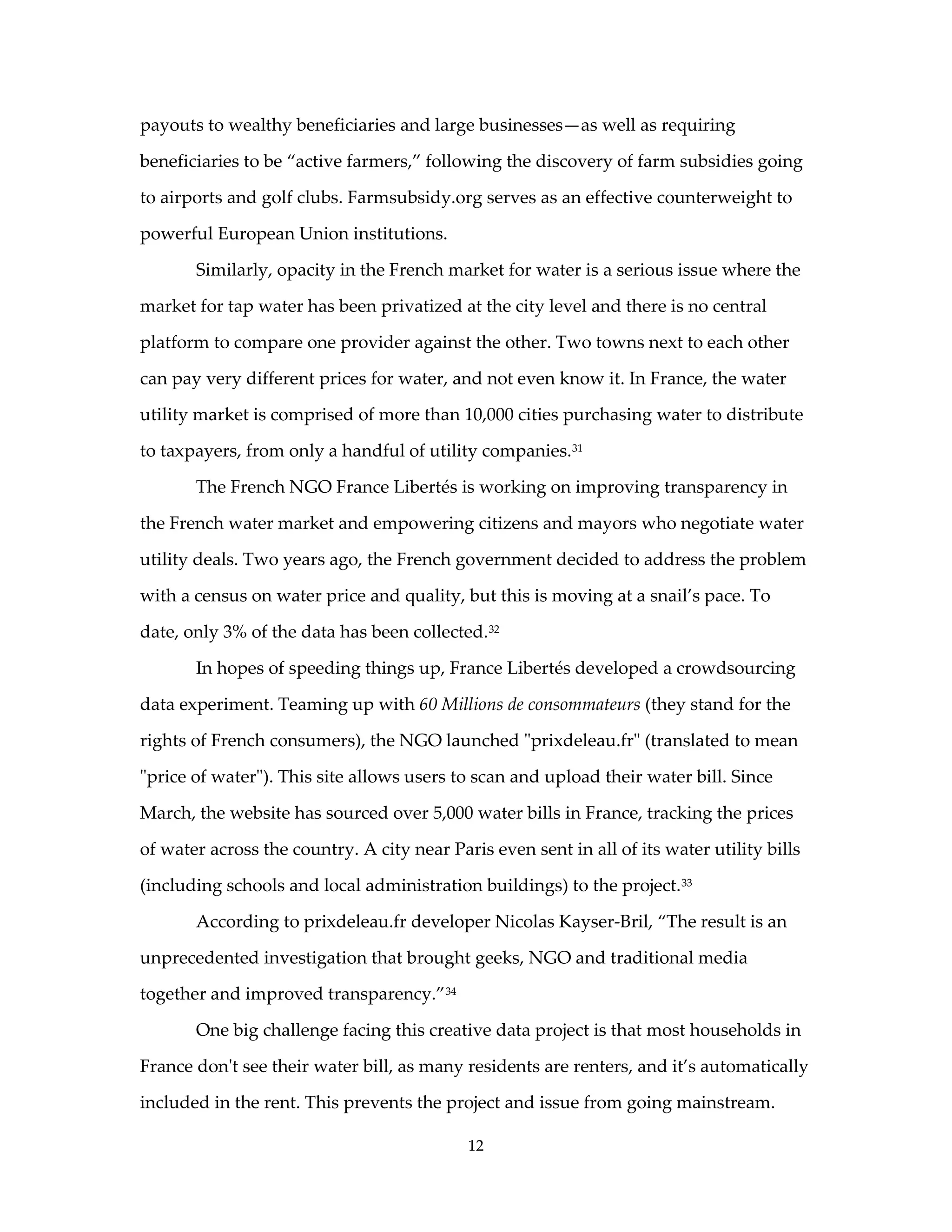
![Despite this, more than six months after the site’s launch, conversion rates to
providing water bill information are still strong, says Kayser-Bril.
“While this does not allow for a perfect assessment of the market situation, it
showed stakeholders such as national water overseeing bodies that there was a
genuine, grassroots concern about the price of tap water.” 35
This initiative is shining light on the gap in water prices across the country
and has created pressure on the government and utility companies to address the
problem.
LAUNCH MULTI-BILLION DOLLAR BUSINESSES BASED ON PUBLIC
SECTOR DATA
There is an opportunity to create value with government data, and numerous
new companies can be built on this data.
“We booked a one way ticket to D.C. and said we weren’t going back to San
Diego until we had the information we needed. We had to kick down the door, and
we wouldn’t take no for an answer,” explain the Alfred brothers.36 Their business
BrightScope is a for-profit company based on government data. Brothers Mike and
Ryan Alfred wanted to find a way to help Americans retire earlier, and discovered
an innovative means to analyze 401(k) data from the Department of Labor and
FINRA. They are an example of how open data can help spawn new businesses.
After submitting over 50 Freedom of Information Act requests to the
Department of Labor to release audit report data, the Alfred brothers eventually
retrieved annual data reports of Form 5500s. 37 The Department of Labor defines
Form 5500 as, "a disclosure document for [401(k)] plan participants and beneficiaries,
and a source of information and data for use by other Federal agencies, Congress
and the private sector in assessing employee benefit, tax and economic trends and
policies." 38 BrightScope found free, untapped government data that gave them
enough information to begin building their multi-million dollar company.
13](https://image.slidesharecdn.com/d70kundra-120124080509-phpapp02/75/Digital-Fuel-of-the-21st-Century-Innovation-through-Open-Data-and-the-Network-Effect-13-2048.jpg)
